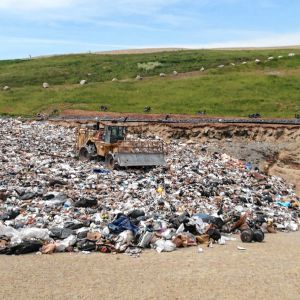COVID watch: There are more cases but not more hospitalizations in N.H.
|
Published: 08-04-2024 4:00 PM
Modified: 08-05-2024 10:54 AM |
If New Hampshire is being hit by a summer surge in COVID cases being seen in parts of the country, as hinted by increased amounts of virus in our wastewater, it’s not sending people to the hospital.
“As I’ve talked to hospital leaders … they certainly are seeing more COVID in ED (emergency department) ambulatory settings … but it’s not translating into hospitalizations in a significant way,” said Steve Ahnen, president of the New Hampshire Hospital Association.
Ahnen said it was likely this was due to vaccination, immunity in people who have previously had COVID and more therapeutic drugs that keep patients from getting so sick that they need to be hospitalized.
“Obviously, we’ve got to keep an eye on things, see where things are headed. We’re looking at variants. we may see more infections but not necessarily more serious illness,” he said.
Since the end of the official COVID emergency, the Hospital Association no longer publishes weekly data on COVID-related hospitalizations, which for a long time was the best way to keep track of the spread of the disease in the state. The closest public metric is the percentage of hospital beds in the state that are filled for any reason, which has been hovering at 80% to 85% this summer, Ahnen said. That is a high figure but not unusually so.
“At the moment, we’re not seeing a big uptick in hospitalizations,” Ahnen said, noting that a variety of causes, including the flu, RSV and other respiratory ailments are putting people in hospital beds. These diseases often become more prevalent in the fall as people head indoors.
The Centers for Disease Control publishes a number of national measurements related to COVID. The percentage of tested patients who are positive for COVID has risen sharply in July, as has the number of visits to emergency departments by people who feel sick. A new variant is part of the reason; changes in the virus due to evolution often make it more easily spread from person to person.
National hospitalizations related to COVID and the percentage of deaths attributed to the disease have also risen this summer, but not sharply.
Article continues after...
Yesterday's Most Read Articles
 ‘There was no oversight’: NH child advocate has been a watchdog for children's care. Now, the office is on the chopping block
‘There was no oversight’: NH child advocate has been a watchdog for children's care. Now, the office is on the chopping block
 Volunteer group wants to help homeless clean up their camp
Volunteer group wants to help homeless clean up their camp
 ‘Less finger pointing, more communication’: Longtime Chichester residents share hopes before second town meeting
‘Less finger pointing, more communication’: Longtime Chichester residents share hopes before second town meeting
 Casella Waste Systems’ landfill project in New Hampshire’s North Country denied permit
Casella Waste Systems’ landfill project in New Hampshire’s North Country denied permit
 New Healthy Buffalo owner to build market in Chichester
New Healthy Buffalo owner to build market in Chichester
 ‘It’s everything’: In largest rally yet, Trump protestors descend on Concord
‘It’s everything’: In largest rally yet, Trump protestors descend on Concord
The only New Hampshire-related public data related to the spread of COVID is the amount of the virus found in wastewater tested from municipal sewage plants. Only three sites are reporting in New Hampshire at the moment; together they are reporting “very high” levels of the SARS-CoV2 virus that causes COVID.
David Brooks can be reached at 603-360-3313 or dbrooks@cmonitor.com.







 Henniker ponders what is a ‘need’ and what is a ‘want’
Henniker ponders what is a ‘need’ and what is a ‘want’ Boscawen residents vote to fund major renovation of public works building
Boscawen residents vote to fund major renovation of public works building ‘Voting our wallets’: Loudon residents vote overwhelmingly against $1.7M bond for new fire truck
‘Voting our wallets’: Loudon residents vote overwhelmingly against $1.7M bond for new fire truck In Pembroke, Education Freedom Accounts draw debate, voters pass budget
In Pembroke, Education Freedom Accounts draw debate, voters pass budget
